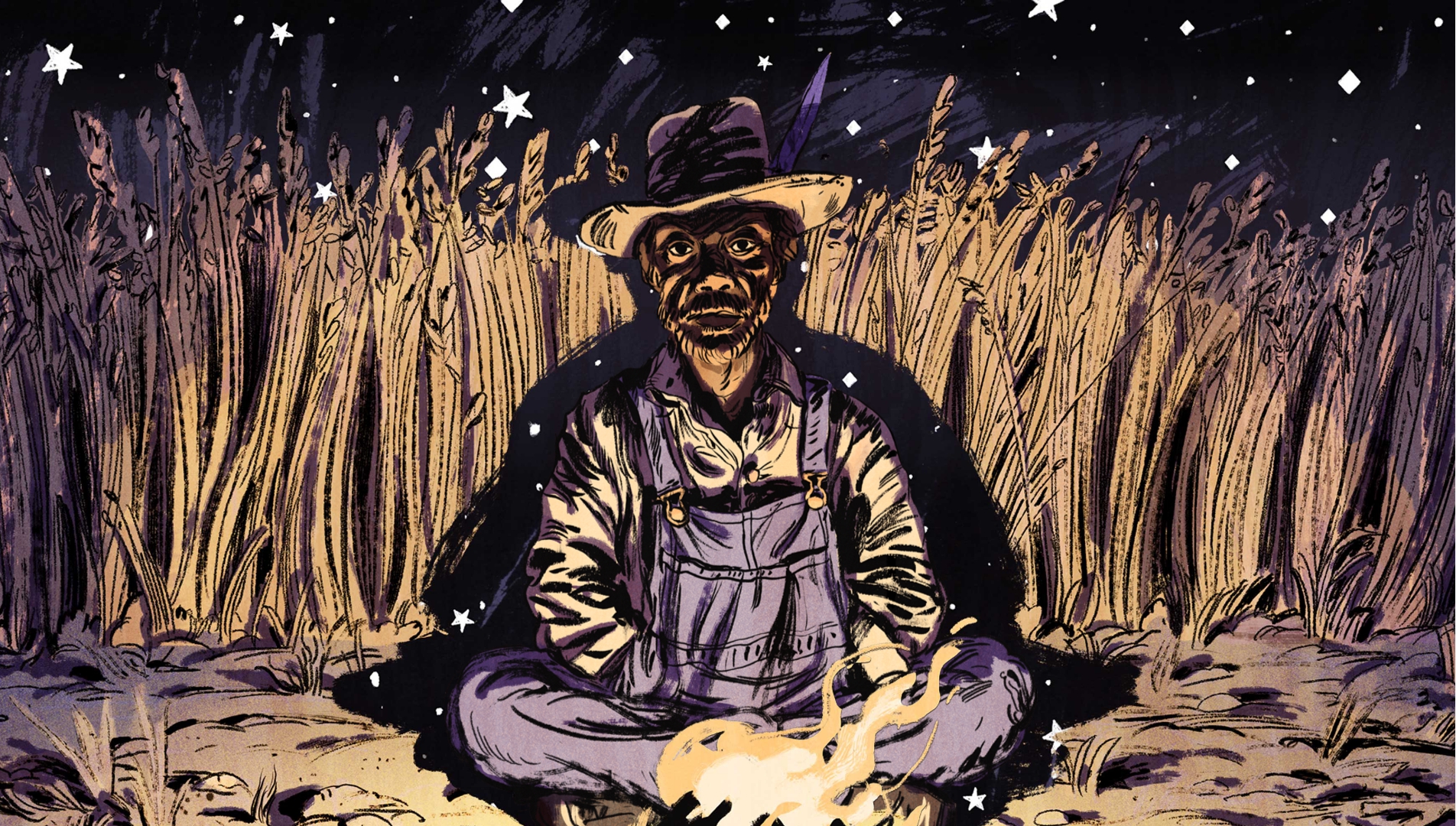As a skeleton wearing a hat
I was scheduled to see Where the Water Tastes Like Wine, a game I knew nothing about (despite having written about its announcement two years ago — my memory isn’t what it used to be). When I finally put the controller down an hour later, designer Johnnemann Nordhagen said most appointments only lasted a fraction of that and I was the only person he’s seen make it down to the South.
It didn’t feel like I was there for that long. I was almost entranced. Where the Water Tastes Like Wine is something really special.

Where the Water Tastes Like Wine is a game about storytelling. Swindled into an existence of servitude, the protagonist is stripped of his flesh and given the task of roaming the country to collect stories. Each story is categorized into one of twelve broad tarot-inspired labels, like authority, the future, or change.
Dotted around the map are small points of interest to investigate. One of the first I came across after being dumped in Maine was a scene of two women being arrested for bootlegging liquor. My skeleton man offered them cigarettes, took a note of the scene, and moved on.
More rarely there are campfires set up, with one of twelve important characters to meet. Each of these people has a more fully fleshed out tale to tell, but it takes some doing to get it out of them. They will ask for stories based on certain themes, and telling them one that matches gets them closer to opening up. If nothing matches, telling anything nets some response, but the only way to advance is to give them what they want. After the evening is over, the characters will say where they’re headed and it’s back to roaming the country.
Where it gets really interesting is watching the stories evolve through their telling and retelling. Remember the bootleggers being arrested? I told that story to a traveler seeking adventure, then later I heard a similar story about a couple of women getting into a shootout with the cops. After noting that update, I now had a new tool in my storytelling arsenal. Later, it would change again to be a shootout involving a crime boss.
A game about telling stories is a cool idea, but that idea could fall flat with poor writing. Thankfully, the lives of the highlighted characters were immediately engrossing, and each of the twelve main stories is written by a different author. There are some recognizable names behind the writing, like Leigh Alexander, Cara Ellison, and Austin Walker.
And so I stuck with Where the Water Tastes Like Wine longer than most. I wanted to squeeze everything I could out of it. Once I had my bearings of where my skeleton was in the world, I set myself an arbitrary goal to walk from Maine down to Mississippi, collecting stories all along the way.

Indeed, if you’ve made it this far, I will admit. This is probably going to be derogatorily described as a “walking simulator” by the haters. And boy, the walking in this is slow. It takes a long time to get from one place to another, and although there is a button for throwing up a thumb bone to ask to hitch a ride, I never got anybody to pick me up.
It will probably frustrate those who just want to get to the end, but I took the glacial walking speed as a deliberate design decision. With the open country ahead and minutes before reaching that destination in the distance, there’s nothing to do but listen to the (fantastic) folk music backing the travel and think. Think about the events seen previously and the stories relayed. Think about the lives of the people just trying to get by in one of the most devastating time periods of U.S. history.
That might be what makes Where the Water Tastes Like Wine so special. In a world full of immediate gratification and constant distraction, this slows things down. Even on the noisy PAX show floor, with those headphones on and the open road in front of me, I felt like I could slow down, tune everything else out, and be comfortable, alone in my thoughts.


